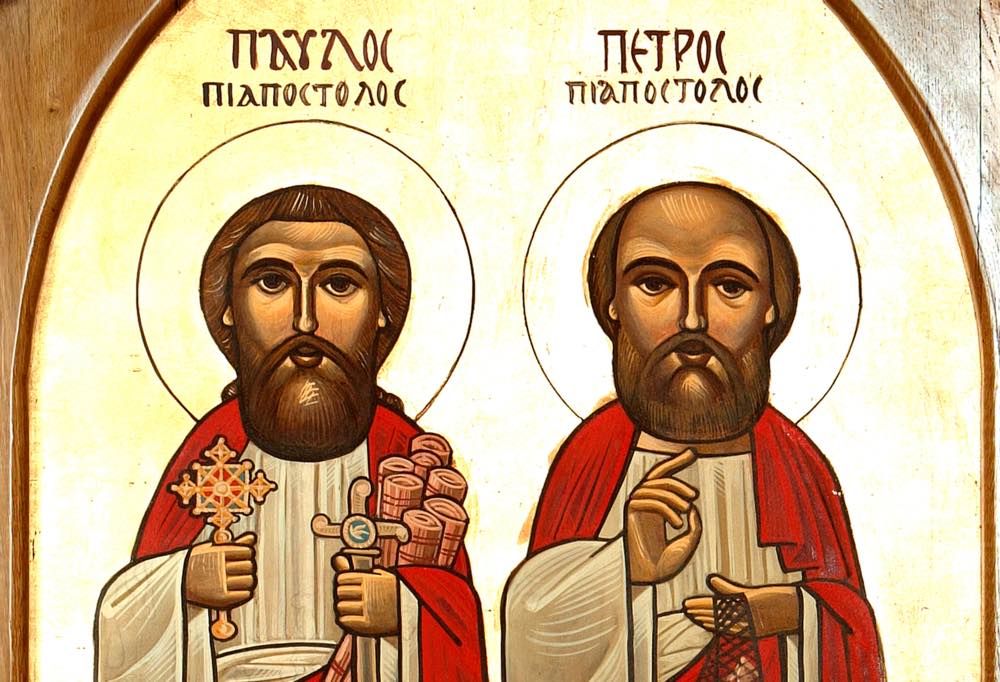Rev José Mario O Mandía
jmom.honlam.org
What does the “fire” of purgatory consist in?
Pope Benedict explains: “Some recent theologians are of the opinion that the fire which both burns and saves is Christ himself, the Judge and Saviour. The encounter with him is the decisive act of judgement. Before his gaze all falsehood melts away. This encounter with him, as it burns us, transforms and frees us, allowing us to become truly ourselves. All that we build during our lives can prove to be mere straw, pure bluster, and it collapses. Yet in the pain of this encounter, when the impurity and sickness of our lives become evident to us, there lies salvation. His gaze, the touch of his heart heals us through an undeniably painful transformation ‘as through fire.’ But it is a blessed pain, in which the holy power of his love sears through us like a flame, enabling us to become totally ourselves and thus totally of God” (Spe Salvi 47).
Some people think that those in Purgatory may still be condemned to hell. Such is not the case. Souls in Purgatory are just waiting to enter heaven. In fact, the great difference between Purgatory and hell is that suffering in Purgatory is a hope-filled suffering.
Is there a way of going around Purgatory? There are many.
As we have seen earlier, we have a choice of being purified either in this life or in the afterlife (Purgatory).
In this life, we can undergo cleansing either (1) actively, on our own initiative, or (2) passively.
(1) We actively purify ourselves through sacrifice or mortification. The Church prescribes some mortifications like fasting and abstinence on certain days of the year. We cannot, however, fast and abstain everyday, because we need to replenish our energy in order to fulfill our daily obligations well. So how do we follow Jesus’ command to carry our daily cross (cf Luke 9:23)? Indeed, everyday, we have many opportunities to offer little mortifications to God whenever we fulfil with love, diligence, competence, and perfection the duties at home, at work, and in society. Hence, one need not look for unusual ways of purifying oneself. His ordinary duties presents him with countless occasions to purify himself.
We can also exercise little acts of detachment from things that catch our fancy, little acts of self-denial or saying ‘No’ to things that are good in themselves but which we decide to do without.
Saint John Chrysostom (347-407) advises us: “Let the hands fast, remaining clean from stealing and greediness. Let the legs fast, avoiding roads which lead to sinful sights. Let the eyes fast by not fixing themselves on beautiful faces and by not observing the beauty of others. … Let your hearing also fast. The fast of hearing is not to accept bad talk against others and sly defamations.… Let the mouth fast from disgraceful and abusive words.”
Moreover, in this life, we can also take advantage of the partial and plenary indulgences that the Church grants. We will talk more about this on another occasion.
(2) We are purified (in a “passive” way) by God through the sorrows and sufferings He permits or sends us. The trials we suffer are actually gifts of God’s mercy – like alms given to a beggar – because through them, He purifies us and makes it possible for us to get to heaven sooner. When accepted gladly, generously and gratefully, these trials either reduce the time we have to spend or completely eliminates the need to be purified further in Purgatory.
The Church also teaches us: “Because of the communion of saints, the faithful who are still pilgrims on earth are able to help the souls in purgatory by offering prayers in suffrage for them, especially the Eucharistic sacrifice. They also help them by almsgiving, indulgences, and works of penance” (CCCC 211). In other words, all the things we do on earth to purify ourselves can be offered to God on behalf of and for the benefit of the holy souls in Purgatory. (Image by Joshua Woroniecki from Pixabay)


 Follow
Follow


